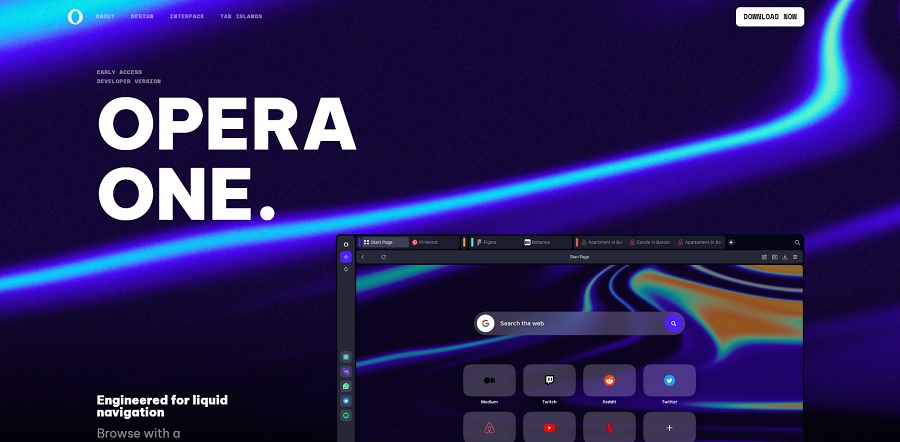Opera Software, the company behind the Opera web browser, has announced that it will soon be replacing it with a new, more modular version called Opera One. If you use Opera for exploring the depths of the web, you have only a few months left to enjoy it.
The End of Opera Browser
Opera Software has announced that it will be ending support for its current web browser on Windows, macOS, and Linux in the coming months. The browser will be replaced by Opera One, which features a new modular design and interface.
Modular Design and Interface
Opera One will be the first major Chromium-based browser to integrate a multi-threaded process, providing a new user interface. The new interface is much more modern than the one currently used in the original version of Opera, featuring animations and smooth transitions and offering more responsive navigation than usual.

Tab Islands Functionality
The browser will also offer Tab Islands functionality, which allows users to organize tabs into contextual groups. This is presented as a “more intuitive way of interacting with and managing different tabs.” For example, if you open multiple pages of the same website simultaneously, the tabs for those pages will be automatically grouped together.
Generative AI for Adaptation
To breathe new life into Opera One and offer new features, Opera Software plans to rely on generative artificial intelligence. The goal is to adapt to the needs of each individual user, highlighting only the modules that are most relevant to each profile. Opera One is presented as “uncluttered” and leaves “room for future AI-based features and extensions.”
The Future of Opera
“Opera One is the first step in our intelligent, modular design within our ecosystem. This is the beginning of a whole series of innovations, including Opera’s own AI engine, which will appear in the coming months,” said Joanna Czajka, Director of Opera Products. Opera One is already available and will finally replace Opera later this year.

